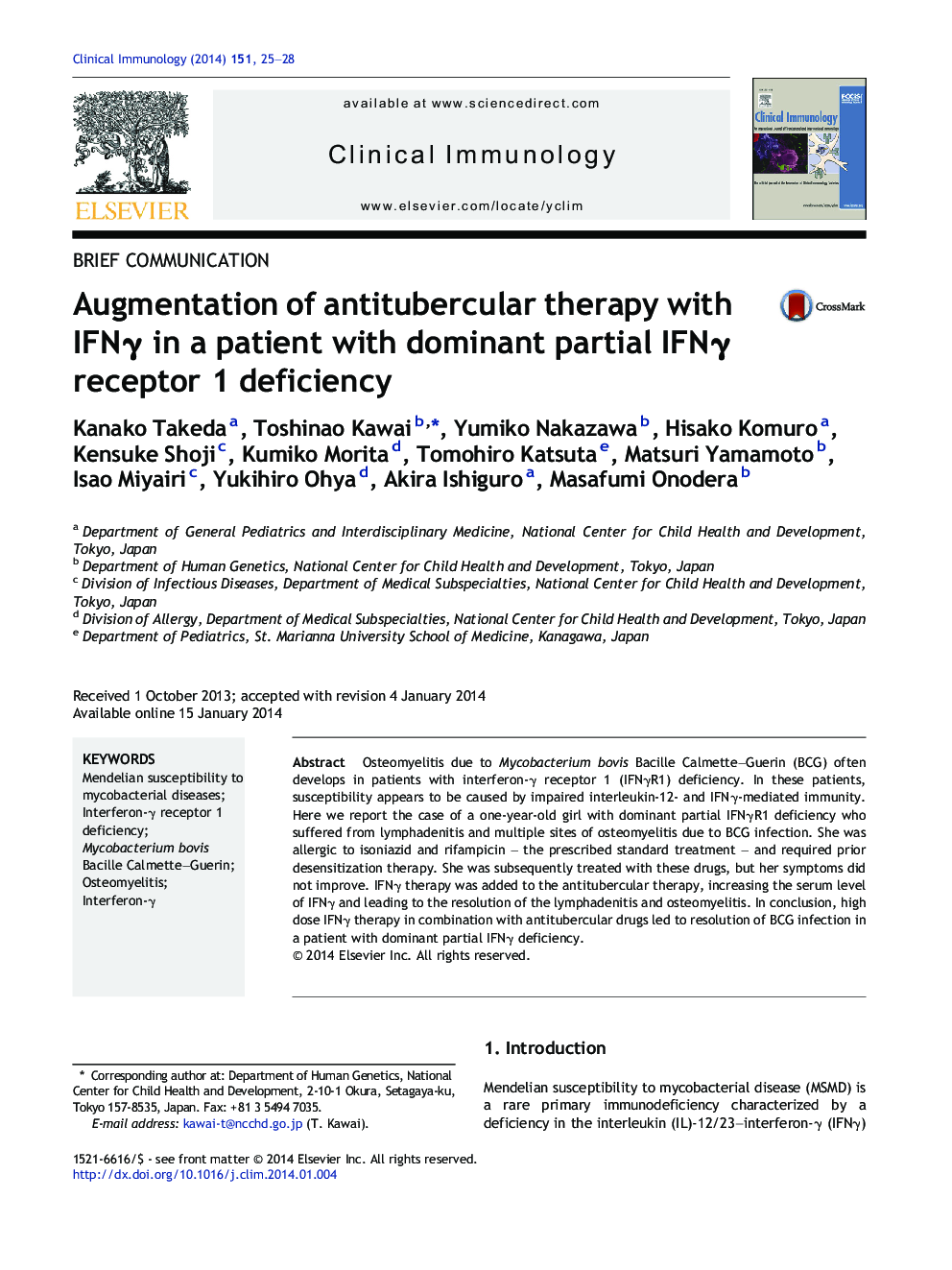| Article ID | Journal | Published Year | Pages | File Type |
|---|---|---|---|---|
| 6087405 | Clinical Immunology | 2014 | 4 Pages |
â¢A patient with dominant partial IFNγR1 deficiency suffered from BCG osteomyelitis.â¢The patient underwent desensitization to antitubercular drugs.â¢Interferon-γ therapy augmented the therapeutic effect of antitubercular therapy.
Osteomyelitis due to Mycobacterium bovis Bacille Calmette-Guerin (BCG) often develops in patients with interferon-γ receptor 1 (IFNγR1) deficiency. In these patients, susceptibility appears to be caused by impaired interleukin-12- and IFNγ-mediated immunity. Here we report the case of a one-year-old girl with dominant partial IFNγR1 deficiency who suffered from lymphadenitis and multiple sites of osteomyelitis due to BCG infection. She was allergic to isoniazid and rifampicin - the prescribed standard treatment - and required prior desensitization therapy. She was subsequently treated with these drugs, but her symptoms did not improve. IFNγ therapy was added to the antitubercular therapy, increasing the serum level of IFNγ and leading to the resolution of the lymphadenitis and osteomyelitis. In conclusion, high dose IFNγ therapy in combination with antitubercular drugs led to resolution of BCG infection in a patient with dominant partial IFNγ deficiency.
